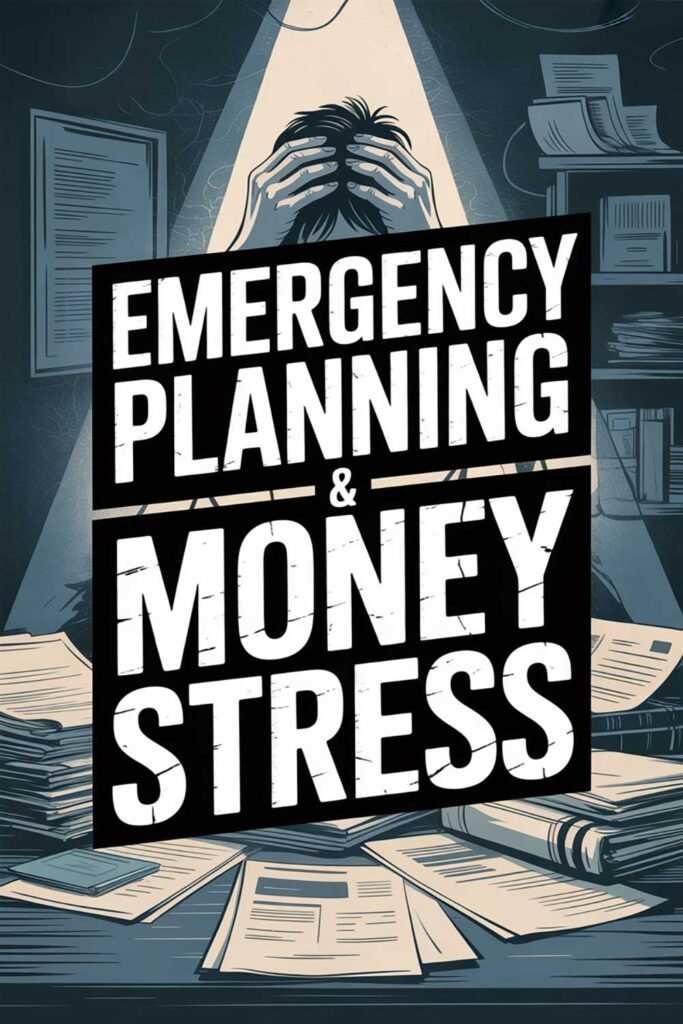
The Importance of Long-Term vs. Short-Term Goals: Charting Your Course for Success
In the pursuit of any significant aspiration, whether personal, professional, or financial, the concept of setting goals is universally acknowledged. But it’s not enough to simply have goals; true success lies in understanding the interplay between your grand visions for the future (long-term goals) and the concrete steps you take today (short-term goals). Without this crucial distinction and strategic connection, even the most ambitious dreams can feel overwhelming, while daily efforts might seem aimless.

Imagine embarking on a cross-country road trip. Your long-term goal is to reach the Pacific coast. Your short-term goals are the individual cities you plan to stop in along the way, the gas stations you’ll visit, and the daily mileage you aim to cover. Each serves a distinct purpose, and one cannot truly succeed without the other. Neglecting the long-term vision leaves you aimlessly wandering; ignoring the short-term steps means you never leave the driveway. This integrated approach is essential for any major life project, whether it’s personal growth, career advancement, or planning your debt-free money goals: how to plan your financial comeback.
This article will delve into the critical importance of balancing long-term and short-term goals, exploring how each contributes to your overall success and providing strategies to help you effectively chart your course towards your most meaningful aspirations.
Defining the Horizon: What Are Long-Term and Short-Term Goals?
Let’s first clarify these two distinct, yet interconnected, types of goals:
- Long-Term Goals: These are your big-picture aspirations, your ultimate destination. They are often ambitious, challenging, and typically require a significant amount of time (usually 1 year to 5 years, 10 years, or even a lifetime) to achieve. They represent the “what” and the “why” of your journey.
- Examples: Retire by 55, become a CEO, write a novel, buy a house, run a marathon (if starting from scratch).
- Short-Term Goals: These are the stepping stones, the smaller, more manageable objectives that serve as milestones on your path to a long-term goal. They are actionable, more immediate, and typically achievable in a shorter timeframe (days, weeks, or a few months). They represent the “how” and the “now.”
- Examples (for “Buy a house in 5 years”): Save $500 this month, research mortgage lenders this week, attend a first-time homebuyer seminar, cut discretionary spending by 10%.
The Symbiotic Relationship: Why You Need Both
Neither long-term nor short-term goals can thrive in isolation. Their power lies in their synergy.
The Importance of Long-Term Goals: The Vision and Direction
- Provide a Sense of Purpose and Meaning: Long-term goals give your daily efforts context. They answer “Why am I doing this?” and prevent you from feeling lost or aimless. This clarity is vital for motivation.
- Guide Decision-Making: When faced with choices, you can ask, “Does this bring me closer to my long-term goal, or take me further away?” This acts as a powerful filter for your actions.
- Inspire and Motivate: Ambitious long-term goals can fuel your passion and keep you driven, even when short-term progress feels slow. They paint a compelling picture of your desired future.
- Foster Resilience: Knowing your ultimate destination helps you push through setbacks and maintain persistence. A minor stumble on a short-term goal doesn’t derail the entire long-term vision.
Without a long-term vision, your short-term efforts risk becoming disconnected and less impactful. You might busy yourself with daily tasks, but without knowing where they’re leading, you could end up in a place you never intended. This is especially true for financial planning; without long-term clarity, managing money goals for couples: how to plan a shared financial future can become challenging.
The Importance of Short-Term Goals: The Action and Momentum
- Create Actionable Steps: Long-term goals can feel overwhelming. Short-term goals break them down into bite-sized, manageable actions that you can start on today. This process is crucial for how to break big money goals into bite-sized milestones and other large aspirations.
- Build Momentum and Confidence: Achieving small short-term goals provides immediate wins, boosting your confidence and encouraging you to continue. Each successful step builds psychological momentum.
- Allow for Course Correction: By frequently checking in on short-term progress, you can identify if your strategies are working or if you need to adjust your approach before you’re too far off course from your long-term goal.
- Maintain Motivation: Consistent progress on short-term goals keeps you engaged and prevents procrastination. You see the immediate impact of your efforts.
- Prevent Overwhelm: Focusing on one small step at a time makes even the most daunting long-term goal feel achievable.
Without short-term goals, long-term visions remain abstract desires, never translating into tangible progress.
Integrating Long-Term and Short-Term Goals: Strategies for Success
The key is to create a seamless connection between your overarching vision and your daily actions.
1. Start with the End in Mind (Long-Term First)
Before setting any short-term goals, clearly define your long-term objectives. What do you truly want to achieve in 1, 3, 5, or 10 years? This long-term clarity will then inform your immediate steps.
- Real-Life Example: Sarah’s long-term goal was to transition from her corporate job to running a thriving home-based business by 2030. This clear, decade-long vision then allowed her to break it down into annual milestones (e.g., “build client base,” “increase revenue by 20%”) and monthly short-term goals (e.g., “send 5 cold emails,” “create 2 new portfolio pieces”).
2. Backward Planning (from Long-Term to Short-Term)
Once your long-term goal is set, work backward.
- The Strategy: Ask: “What needs to happen in the next year to get me closer to my 5-year goal?” Then, “What needs to happen this quarter to achieve my annual goal?” “What needs to happen this month?” “What daily or weekly actions must I take?”
- Real-Life Example: Tom’s long-term goal was to save $100,000 for a down payment in 5 years. He worked backward: That meant $20,000 per year, roughly $1,667 per month. His short-term goal for the first month was to save $1,700 by cutting specific expenses and optimizing his budget. This made the large long-term goal manageable.
3. Establish Check-In Points
Regularly review both your short-term progress and the alignment with your long-term vision.
- The Strategy: Schedule weekly, monthly, and quarterly reviews. Use a journal, spreadsheet, or app to track your progress. Adjust your short-term tactics if they’re not effectively moving you towards your long-term destination. For financial goals, it’s particularly helpful to how to track your progress and stay motivated toward your financial goals.
- Real-Life Example: Maria had a long-term goal of becoming fluent in Spanish in 3 years. Her short-term goal was to complete one language learning app module per week. Each Sunday, she reviewed her progress. If she fell behind, she adjusted her schedule for the next week or reassessed if her daily commitment was realistic.
4. Celebrate Milestones (Short-Term Wins Fuel Long-Term Drive)
Acknowledge and celebrate your short-term achievements.
- The Strategy: Each time you hit a short-term goal, take a moment to celebrate. This provides positive reinforcement and fuels your motivation for the next step. The celebration doesn’t have to be expensive; it could be a favorite meal, an hour to read, or simply acknowledging your progress.
- Real-Life Example: Alex’s long-term goal was to write a novel. His short-term goal was to write 500 words daily. After consistently hitting his daily word count for a week, he would treat himself to an extra hour of guilt-free video games. This small, consistent reward kept him motivated for the long, arduous journey of novel writing.
5. Prioritize with Purpose (Connecting Daily to Destiny)
Ensure your short-term goals are truly serving your long-term vision.
- The Strategy: When faced with competing priorities, ask yourself: “Which of these tasks most directly contributes to my most important long-term goals?” This helps you avoid getting bogged down in busywork that doesn’t advance your true aspirations. This is vital when considering how to prioritize your money goals when everything feels important, or any other area of life.
- Real-Life Example: Brenda had a long-term goal of career advancement. Her short-term tasks included both daily administrative duties and strategic projects. She learned to prioritize the strategic projects, even if they felt less urgent initially, because she knew they directly aligned with her long-term career growth, ultimately making her a more valuable asset.
The Unstoppable Force of Aligned Goals
When your long-term goals act as your guiding stars and your short-term goals serve as the steady steps on your path, you create an unstoppable force. You gain clarity, maintain motivation, and systematically build the future you envision, one purposeful action at a time. This synergy transforms vague hopes into concrete accomplishments, allowing you to live a life not just by chance, but by design.
20 Empowering Quotes on Goals and Vision:
- “The future belongs to those who believe in the beauty of their dreams.” – Eleanor Roosevelt
- “The journey of a thousand miles begins with a single step.” – Lao Tzu
- “Goals are dreams with deadlines.” – Diana Scharf Hunt
- “You are never too old to set another goal or to dream a new dream.” – C.S. Lewis
- “Whether you think you can, or you think you can’t – you’re right.” – Henry Ford
- “A goal properly set is halfway reached.” – Zig Ziglar
- “Our goals can only be reached through a vehicle of a plan, in which we must fervently believe, and upon which we must vigorously act. There is no other route to success.” – Pablo Picasso
- “It always seems impossible until it’s done.” – Nelson Mandela
- “The only way to do great work is to love what you do.” – Steve Jobs
- “If you want to achieve greatness stop asking for permission.” – Anonymous
- “What you get by achieving your goals is not as important as what you become by achieving your goals.” – Zig Ziglar
- “Discipline is the bridge between goals and accomplishment.” – Jim Rohn
- “The best way to predict the future is to create it.” – Peter Drucker
- “You are capable of more than you know.” – Glinda the Good Witch (from The Wizard of Oz)
- “Set your goals high, and don’t stop till you get there.” – Bo Jackson
- “The secret of getting ahead is getting started. The secret of getting started is breaking your complex overwhelming tasks into small manageable tasks, and then starting on the first one.” – Mark Twain
- “Don’t count the days, make the days count.” – Muhammad Ali
- “The biggest risk of all is not taking one.” – Mellody Hobson
- “Opportunity is missed by most people because it is dressed in overalls and looks like work.” – Thomas Edison
- “You don’t need more time, you just need to decide.” – Seth Godin
Picture This
Imagine you’re building a magnificent skyscraper. Your long-term goal is the completed, towering structure reaching into the clouds. It’s grand, inspiring, and seems impossibly far away. Your short-term goals are the daily tasks: laying a specific number of bricks, pouring a section of concrete, installing a window. Each day, you focus on these small, manageable tasks. You don’t try to build the whole skyscraper in one go. But crucially, every single brick, every steel beam, is placed according to the architect’s grand design (your long-term goal). Without the long-term vision, you’re just laying bricks aimlessly. Without the short-term efforts, the skyscraper remains a blueprint. Together, they create a masterpiece of achievement.
Share This Article
Did this article help you understand the importance of balancing long-term and short-term goals? Share it with friends, family, or on social media to help others chart their course for success!
Disclaimer
This article is intended for informational purposes only and provides general guidance on goal setting and personal development. Individual results may vary based on effort, circumstances, and unforeseen challenges. It is not a substitute for professional advice, diagnosis, or treatment for specific psychological or financial issues. If you are experiencing significant distress or difficulties in personal goal achievement, please consult with a qualified professional or coach.






